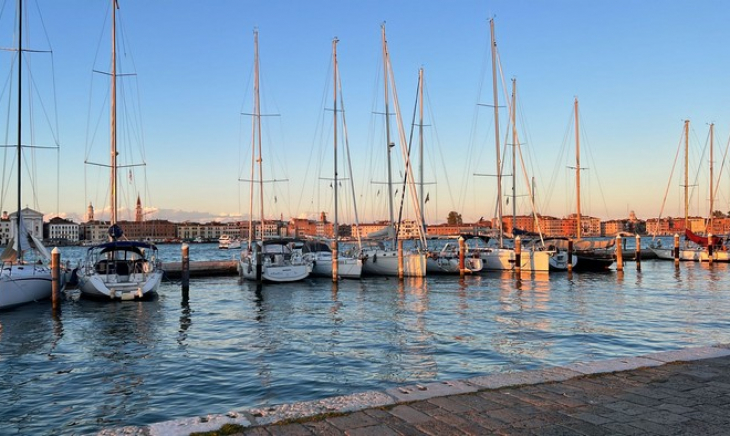Roots of the future/3 - There are books that tell us everything about life and teach us what agape is
By Luigino Bruni
Published in Avvenire 17/09/2022
Victor Hugo's Les Misérables also contain a great teaching on agape as a cure for misery. Starting with the meeting between Valjean and Bishop Myriel
God makes us innocent with our eyes, some writers with the pen of the soul. Art is the invisible path that lies between Golgotha and the empty tomb
There are some books, and they are very few, which are able to say everything that needs to be said about justice, about moral pain, about life all on their own. Like everyone else, they are children of their time and place, yet they possess an almost divine privilege of eternity. Their characters are more contemporary than our colleagues are, they are friends and relatives: they are us, the truest part of our heart. As the pages of these books and poems go by, we reread our life, invisible or hidden corners are lit up, and those words manage to speak of unspeakable pain. We read the stories of the characters and those stories read us and reveal the soul within the soul.
Les Misérables by Victor Hugo is one such book. Its main protagonist is Jean Valjean. However, the novel opens with a bishop, Monsignor Myriel, to whom some of the most beautiful and intense pages in the history of literature are dedicated. Pages that touch us, move us, convert us.
We find ourselves in the year 1815 - the same year as the beginning of the story of that other French masterpiece: The Count of Monte Cristo. We meet a bishop, now elderly, who in his youth was the son of an aristocrat. The Revolution marked his economic and social ruin. He had to migrate to Italy with his young wife, who died during that exile. This failure of the projects of youth brought about a turning point: priesthood. The bishop is presented to us as an icon of a lived Gospel. As soon as he is appointed, he donates his large episcopal residence to the hospital in Digne, then we are given a description of his personal finances, all spent on the poor. Furthermore, we see him traveling on a donkey's back, never in a carriage.
One winter evening, the tramp Jean Valjean, just released from prison, comes knocking on the door of this bishop. He has just been released after nineteen years in prison. He wound up locked up there because he was out of work (he was a pruner): desperate due to the hunger of his widowed sister and her seven children, he ended up stealing a loaf of bread from a baker: «He went in gloomy, he came out in despair». Hugo explains the reasons for this desperation. In prison, «a natural light was lit within him», and «misfortune, which had his light», had increased it. In that unfortunate light Jean Valjean became a «court to himself», and «recognized that he was not an innocent man unjustly punished». He had really stolen that bread, he had not been able to bear the hunger, he had not been able to wait - he pondered while he was in chains. However, then he also began to think, «Was he the only one who had acted in a wrongful way in his fateful story?» and he thought no. He realized that society was responsible as well, of making him lose his job first, then starving him and his nephews and nieces, and finally of keeping him in prison for nineteen years for stealing a loaf of bread. Hence, «he judged society and condemned it: condemned it to its hatred». He declared to himself «that there was no balance between the damage he caused and the damage caused to him». Thus «Jean Valjean felt indignant».
Les Misérables is also a great reflection on the innocence of human beings. Even though Jean Valjean acknowledges his faults, we feel he is innocent. Because the innocence that counts is not the absence of guilt or harmlessness, (we will come back to this shortly) if this were the case, no person would be innocent. The innocence of this novel, deeply biblical and evangelical, instead is about the purity of the heart, our sincerity, about honesty towards oneself and towards others. Jean Valjean «was not a bad-natured man. He was still a good man when he ended up in jail». And the writer asks himself: «Can a man who was created good by God become bad by the acts of man?» Can the wickedness within ourselves and others «erase that word which the finger of God writes on the forehead of every man: Hope"? Hugo's answer is a clear: "no". Justice is not able to see this profound innocence, nor can we see it in others or in ourselves. It is the innocence of the prodigal son, that of Job. An innocence that is able to see God, which must at least be able to see God. The image of God, the vocation to love and form relationships, remain alive and operating deep in our marrow despite Cain’s gesture. The writer's gaze, while reaching the victims of his story, touches them with the pen of the soul and by doing so, he makes them innocent. Art is the invisible path that leads the victims from Golgotha to the empty tomb. The Bible tells us that God, while looking at us and touching us in our misery, makes us innocent with his gaze, from our first breath to our last, when in the arms of the angel of death we will feel the same innocence with which we came into the world.
Jean Valjean had come to Digne with all this hatred and indignation. In the city, he is recognized as an ex-convict and therefore expelled from the inns. Until, resigned to sleeping hungry and out in the open, he ends up at Myriel's door. The bishop welcomes him, sets the table with silver cutlery, and when he addresses Jean Valjean with the word "sir", Hugo gives us one of his most beautiful phrases: «Ignominy thirsts for consideration».
After this fraternal dinner of agape, night falls and the ghosts of hatred, anger and indignation return to Jean Valjean's mind: «Those six pieces of silver cutlery haunted him». He gets up, goes to the closet, then «he stuffed the silverware into his backpack, crossed the garden, jumped the wall like a tiger, and fled».
The next morning, the maid discovers the theft and alerts the bishop and this exchange follows: «Was that silverware ours? It belonged to the poor. Who was that man? Evidently a poor man». There is a knock on the door: «Three men held a fourth by the collar. The first three were gendarmes, the other one was Jean Valjean». Thus, here comes the unexpected: «Ah there you are, I am happy to see you. What happened? I also gave you the silver candlesticks: why did you not take them with you along with the cutlery?» Our breath skips a beat.
Being hospitable is a vulnerable gesture. The guest may be an angel (Hebrews 13,2), but whoever arrives could also be Ishmael who killed Gedaliah, who welcomed him and was murdered while «they were eating together» in his home (Jeremiah 41,1). There have always been, still are and will be guests who are "killed" by those they host. When we welcome someone in our home, we cannot know what will happen during the night, especially when the person who enters is a wounded, humiliated, angry and indignant man. Myriel was imprudent: he was not virtuous; the ethics of agape are not the ethics of virtue. We disapprove of Jean Valjean's action, but the empathic exercise that Hugo makes us carry out does not end with the recommendation: "do not welcome future Jean Valjeans in your home"; instead it ends by increasing the imprudent desire in us to open one more door - at least the one to our home. We have stopped reading the Bible and Les Misérables, we have closed the doors and ports to our travellers, and we have become the new miserables.
Myriel teaches us what agape is. A stranger arrives, perhaps a doomed one. He becomes one of us and we bring out the most beautiful cutlery for him. Experts, as we are in humanity, we are very well aware of the fact that that glimmering sight could become an invincible temptation for that poor man, after all his pain and misfortune. The honour to be shown to our guest, however, overcomes the fear of that temptation - we must not curse every cloud laden with water for the memory of a murderous storm.
This special (beautiful and essential) form of gift begins with a transgression: instead of letting the disquieting guest sleep in a hospice, he offers him a comfortable bed in his home; he does not send him to the soup kitchen, he invites him sit at his family table. To honour his guest he offers him silver cutlery and calls him "sir". Beauty is the first cure for all misery. Then he goes to bed knowing that he is risking his possessions and even his life (the ingenuity of agape is not synonymous with stupidity), but knowing that those goods, and even his life, are not private property, they are already a gift and therefore can-must be donated. Next, the experience of betrayal arrives, and while we are disappointed, we do not feel cheated. Then, the guest returns: and where we would expect condemnation and various insults, instead we find forgiveness. That is, instead of the stolen gifts, he finds another gift: the icing on the cake, the banquet.
Why the candlesticks too, however? Was the good "lie" about the gift of the cutlery not enough? (Note: abstract rules, such as "never tell a lie ", are almost always wrong). Perhaps because the betrayal of those who make mistakes is cured by looking to the future, generating hope with a new gift. It is the free surplus offered to us by the party after our error, which makes us capable of doing what is necessary. Only a new gift can heal the theft of the first gift. Eros is not enough for a vulnerable welcome. Friendship (philia) can offer dinner and a comfortable bed and go as far as the three gendarmes, but there it will stop with an "ungrateful rascal" aimed at the guest. Only agape reaches all the way to the candlesticks. It would be difficult of course, impossible even today, to build an entire social and penal system on agape alone. Nevertheless, by building it without agape, our societies and prisons will end up looking too much like those of Polyphemus and the Benjamites of Gabaa (Judges 19-21).
However, it is in the ordinary life of the bishop where the decisive aspect of the grammar of agape can really be found. Myriel reacted in that way to the betrayal of the gift - his gift of agape includes from the very beginning a concrete possibility of betrayal - because its whole existence was fuelled by agape. What may appear as an emotional response is instead the fruit of a lifetime worth of daily exercise in agape. Like when I see someone drowning in a stormy sea: if I instinctively throw myself into the whirlwind of the waves, I will almost certainly drown with him; if professional swimmer dives instead, the probable rescue will the result of a lifetime worth of training. Agape is not improvisation: it is a conquered habitus, a hard-earned discipline: "When you think of the lightness of a dancer, look at her feet" (Carla Fracci). Not everyone can experience agape hospitality every day: however, someone must do it: at least one person, at least me, at least once. A single agape gesture can redeem a life, hence, it can save the world - we will see this next Sunday, while we continue to follow Jean Valjean. For now, however, let us allow our heart to rest on the beauty of agape.
Dedicated to the prisoners, innocent like Jean Valjean, who in the light of their misfortune have been able to safeguard true innocence.






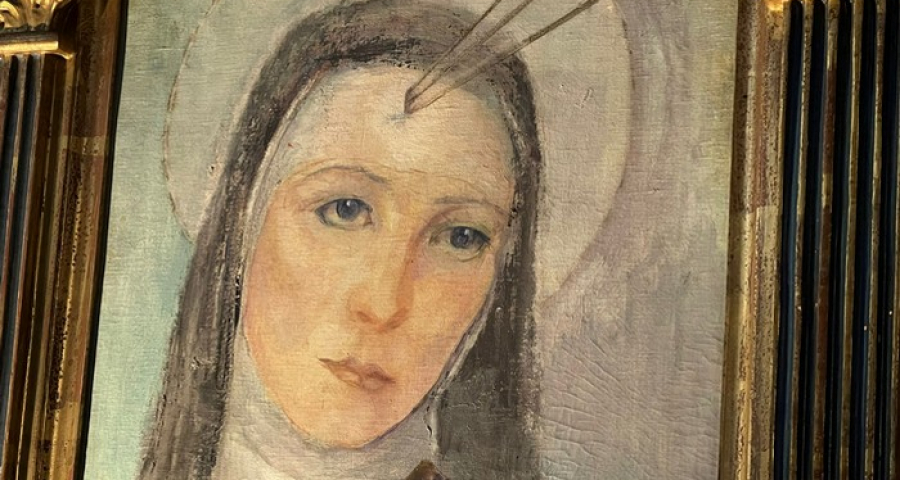
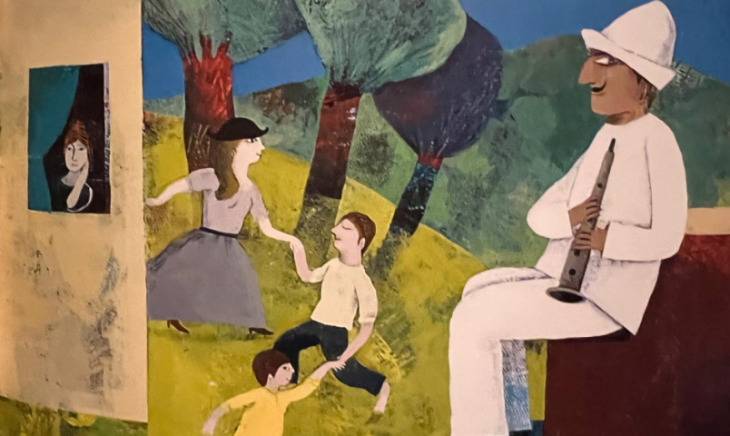
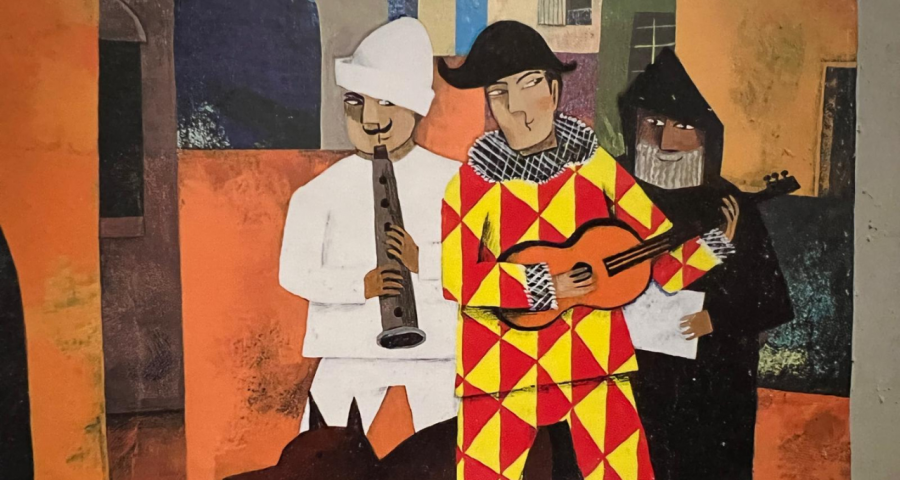
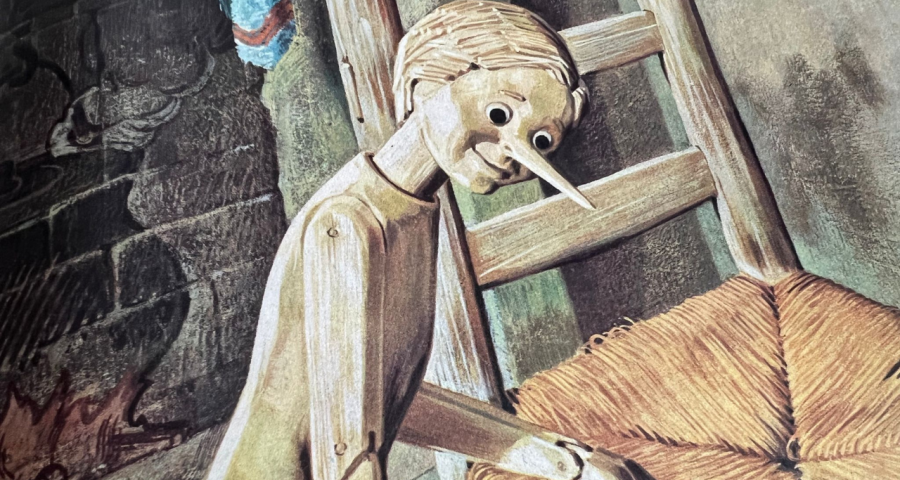
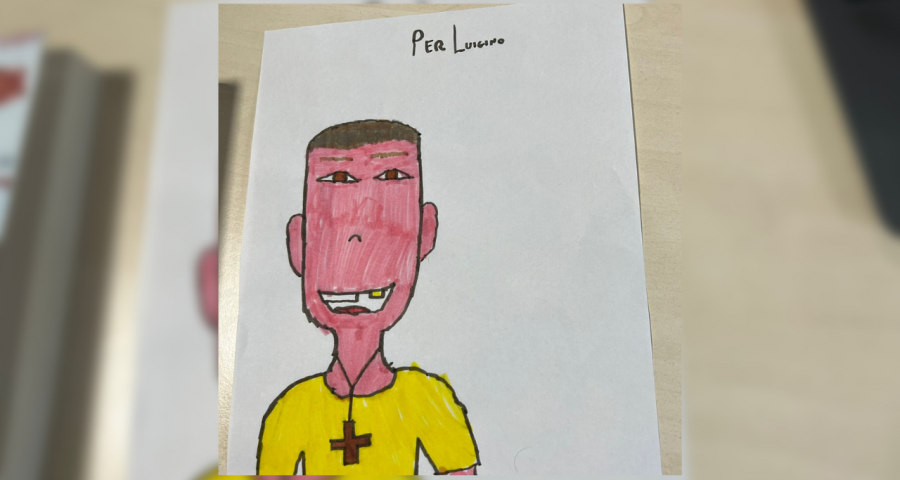
_large_large.png)
